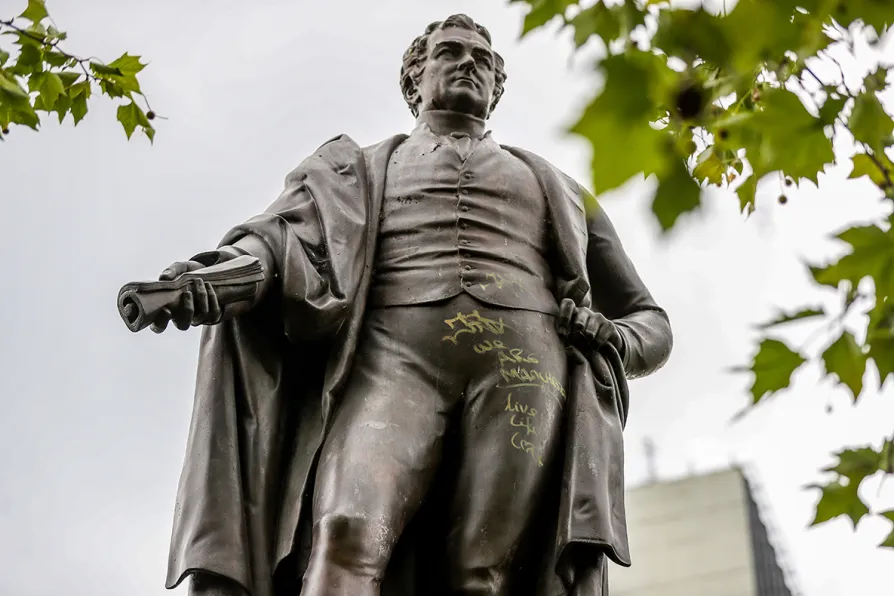Labour prospects in May elections may be irrevocably damaged by Birmingham Council’s costly refusal to settle the year-long dispute, warns STEVE WRIGHT

 A statue of former British prime minister Sir Robert Peel in Piccadilly Gardens, Manchester
A statue of former British prime minister Sir Robert Peel in Piccadilly Gardens, Manchester
AS the author Geoffrey Wheatcroft wrote in the Guardian recently, not even the Tories care who wins the contest to be the next Tory leader. With 121 MPs, it’s very unlikely that whoever is elected will get be a Tory prime minister.
The Tory leadership contest has now reached a halfway stage. After two ballots, six candidates have now been whittled down to four.
However, with such a small electorate and with each of the four attracting support, all we have really learnt so far is that the Tories are completely split over where to go for the future.

While Hardie, MacDonald and Wilson faced down war pressure from their own Establishment, today’s leadership appears to have forgotten that opposing imperial adventures has historically defined Labour’s moral authority, writes KEITH FLETT

KEITH FLETT traces how the ‘world’s most successful political party’ has imploded since Thatcher’s fall, from nine leaders in 30 years to losing all 16 English councils, with Reform UK symbolically capturing Peel’s birthplace, Tamworth — but the beast is not dead yet












